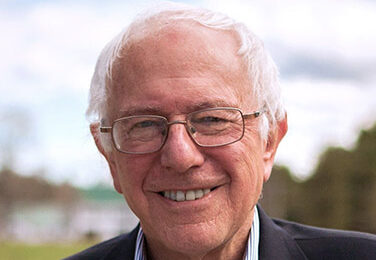A single controversy in 2005 put Denmark on the free expression map forever. As the Mohammed Cartoon crisis still ripples through the world, the clumsy and ineffectual blasphemy (§140 of the penal code) and hate speech laws (§266b) are creating new waves, dumping prominent public figures on the shores of scandal. But now it seems it is no longer enough to simply let those who say idiotic things appear idiotic.
With this tumultuous past and uncertain future, you would expect to see a mature, informed and open public discourse. Unfortunately, what we’re treated to is megalomaniacal attention-seeking masquerading as public intellectualism. We listen as those who bite complain when bitten and then watch as they insist on poking dogs with sticks through fences. But worst of all, we’re assured that all of this is in fact ‘debate’.
The most recent of these televised spectacles was between stand-up comedian Omar Marzouk and artist Firoozeh Bazrafkan. Unfortunately, if any salient points were made they were forgotten as soon as Bazrafkan extended her middle finger to the camera in a masterful display of teenage rhetoric. As easy and consistent targets of suppression and censorship, artists and comedians have long been central figures in the public debate on free expression. Sadly, simply considering yourself an artist or comedian does not automatically qualify you to speak on the topic eloquently, informatively or even sensibly. On a more depressing note, being an elected official appears to qualify you even less so.
So if our right to free speech is dead, perhaps we should seek the advice of the dead. Now, more than ever, classical champions of free speech are pining for an audience more experienced, mature and ready to absorb the intricacy and nuance of their wisdom. Three canonical works changed the way we think about both our freedom and our voices. Perhaps they can again.
Beginning with a work published in 1644 by John Milton, the celebrated poet, polemicist and devoted Christian, ‘Aereopagitica’ is a deeply personal defence of free speech and a free press. Milton passionately argues against a law requiring authors to obtain a government-approved licence before publishing any written work. Some 150 years later (published in three parts from 1794 to 1807), in his widely accessible pamphlet ‘The Age of Reason’, Thomas Paine (a deist) shunned revealed religion while advocating for the freedom of speech and thought. The 100-word introduction alone is as eloquent a defence of free speech as you’ll find today. Finally, John Stuart Mill’s ‘On Liberty’ is an 1859 philosophical essay on Utilitarian philosophy and the important distinction between authority and liberty. In his second chapter, ‘Of the liberty of thought and discussion’, Mill outlines the consequences of both limited and liberated thought.
What all these works agree upon, and what is often forgotten in this debate, is that it is not just the right of every person who speaks to be heard, but the right of every person to hear what is being said. Consequently, every time you silence somebody, you deny yourself the right to hear.
In the debate on free speech, there are no sides to take except the side of free speech itself. I defend no-one and everyone. Whether I disagree with them or not, I will defend the right of the ignorant, the bigoted, the critical, the offensive, the reactionary and the provocative to express their opinions. However, it must be clear that their right to wave their fist stops at my nose, and that threats of violence and death have no place in a system of free thought and enquiry. After all, the right to be offended must begin with the right to offend.
This is about the freedom of ideas – those that are the backbone of political, social and cultural tradition. But like anything man-made, ideas are fallible and have the potential to harm. They need to be refined, strengthened and reinforced before they can be considered valuable. To this end, ideas need opponents. And when ideas claim to understand the very nature of the universe and impose strict laws governing humanity’s place in it, the freedom to speak and to listen is the worthiest opponent and strongest ally of all sides.















